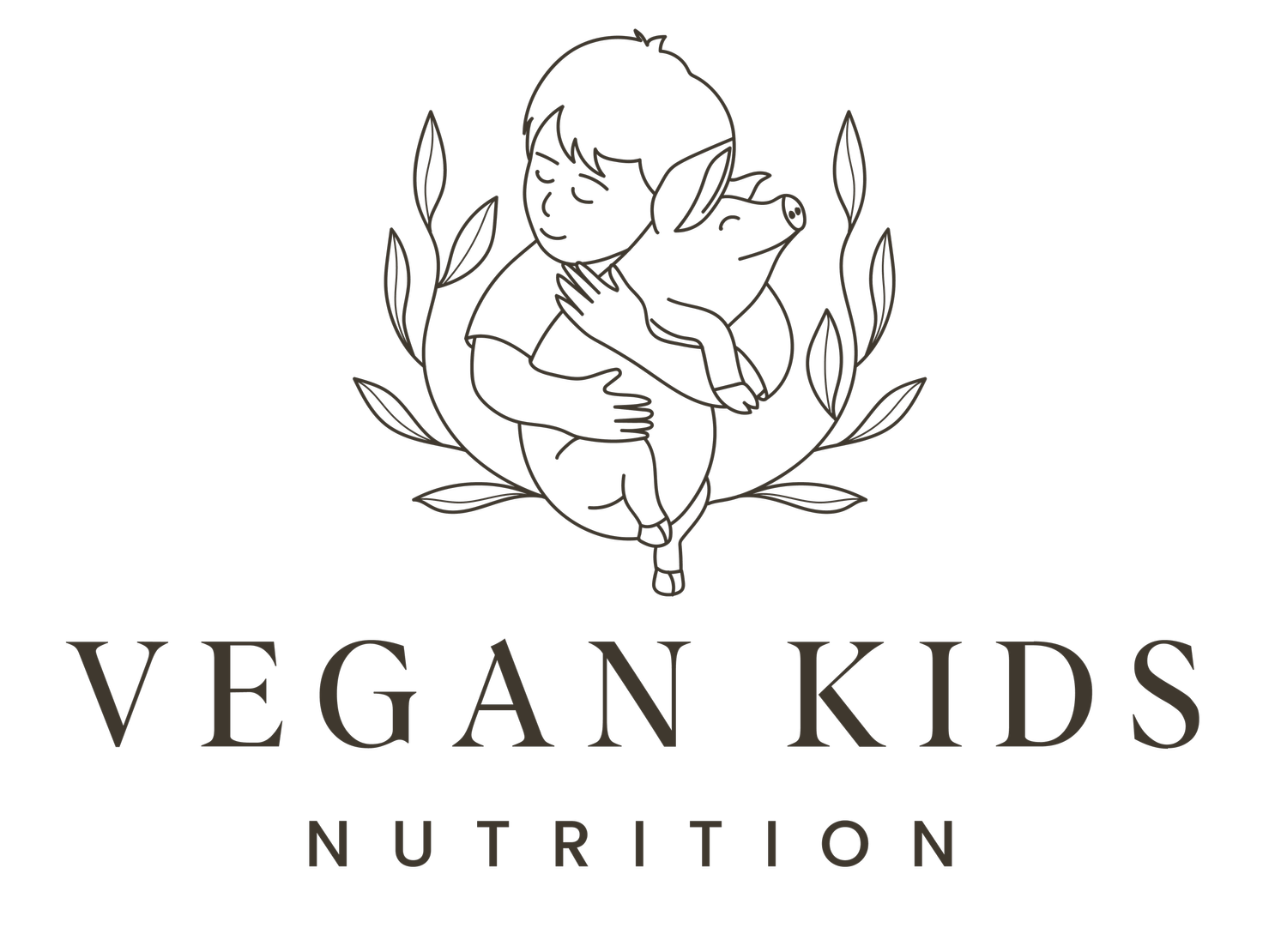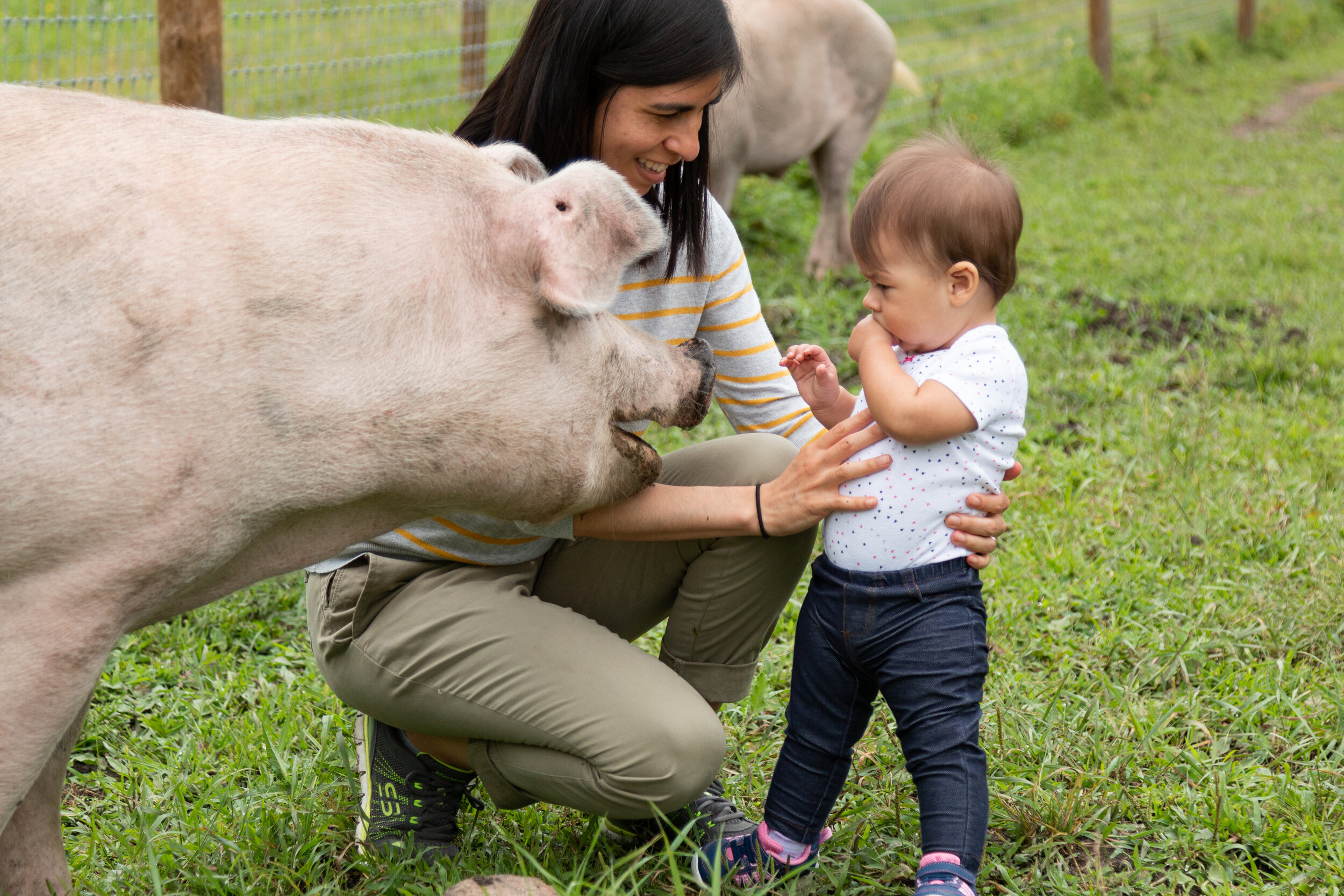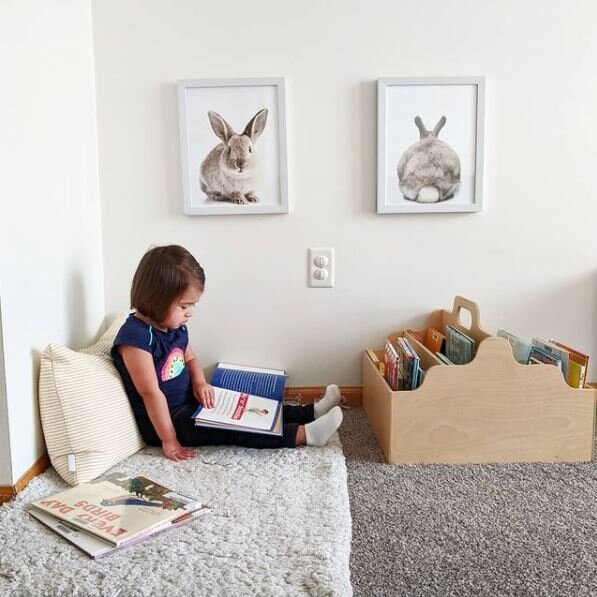As an Amazon Affiliate, I earn from qualifying purchases
Helping my daughter get off her car seat at the grocery store’s parking lot, the car next to us had their window down, easily able to hear their conversation. It seemed like they were planning a get together with someone and mentioned that they can cook “some chicken and have some wine”.
My daughter, the vocal child who never holds back on what she thinks (which I love for the record), must’ve heard the conversation because she turned to me and said “We don’t eat chickens, mama”.
This isn’t the first time she has said that we don’t eat animals. It’s not the first time she’s heard of others choosing to eat animals either.
I looked at my daughter and said “You’re right, we choose not to eat animals as a family”. And I say choose because what we eat truly is a choice.
Are we pressuring our kids to eat vegan?
Before we dive into how to talk to kids about veganism, I want to shine a light on something that ties with what we're discussing in today’s post.
There are some individuals that disagree with our lifestyle of choice, so much so that they believe we are pressuring our children to eat vegan. That we as parents are “forcing” our children to eat or believe a certain way simply because they don’t have a choice.
However, I challenge that idea and quite honestly believe we aren’t “forcing” our children to eat vegan. We’re simply raising our children under a philosophy that we believe in, the same way other parents raise their children under certain values, a certain religion, and even style of clothing. These are choices parents make for the child until they can make that choice for themselves.
I don’t believe we are pressuring or forcing our children to eat vegan, we’re teaching them about how our food choices make an impact on our world. We teach them about what, as a family, we believe in through our dietary pattern and it’s not any different from any other family who follows certain dietary requirements based on religious practices or other beliefs.
By choosing to eat vegan as a family, we end up teaching our children a way of eating that is more compassionate and in turn, naturally instills children with the value of kindness—especially toward the treatment of animals.
How to teach kids about veganism
So, how do we actually teach children about veganism?
I want to share that by me writing this isn’t to tell you exactly how to teach your children about why your family follows a vegan lifestyle. Truthfully, every family chooses to do so in the way that is most comfortable for them.
But even beyond that, through my personal learning about childhood development, teaching our children about veganism should be tailored to their age, understanding, and personality.
Some children may be more sensitive than others and may require a different approach. Some children may be too young to understand the concept of eating animals. And some may learn better through a certain style of teaching (i.e. auditory, visual, reading/writing). So, when considering how to talk or teach your child about veganism, consider their style of learning and personality to best guide you on how to approach the conversation.
When my daughter was just 10 months old, that was the first time I introduced her to the concept of compassion. At the time, my daughter was really into picture books. She had (and still does) a little reading nook with lots of board books that we changed frequently from our local libraries.
Because she had an interest in books, I knew this would be the perfect way to introduce her to the concept of compassion and veganism. I can’t remember the exact first book I read with her that introduced her to this concept but what I do know is that this is the best way she has come to learn about our vegan lifestyle.
We continue to borrow books from the library that overall have a theme about animals, facts about animals, or plant-based eating. But for the most part, teaching her about what we eat and why we eat this way comes from our own conversations.
I do share with her that other people may choose to eat differently than us. That other people do actually eat animals. Personally, I find that this is important because telling her how negative, wrong, or “bad” eating differently doesn’t end up teaching her about the fundamental value of being vegan—which is compassion. We have such conversations in a simple way that she can understand based on her age and comprehension.
My daughter knows that other people, other families, and even other peers in her school eat differently than us. However, she knows that we choose not to eat animals because we don’t need to. “We eat plants and food” is what she says.
And while she understands that we eat plant-based foods, what she’s really learning is that she doesn’t want to hurt animals. She’s learning about her own affection for animals, not because I’m “pressuring” her to not eat them, but because I’m fostering that affection that she and all children already have for animals.
When she’s older, she’ll get to make her own food choices and decide whether she’d like to continue following a vegan diet. But my hope is that the value of compassion my husband and I teach her at home, both from talking about it and from example, is something she gets to carry for life.
Tips on how to talk to your child about veganism
Here are a few ideas about how you can introduce the topic of veganism to your vegan children based on their age
Under 12 months of age
Board books: for infants between 0 - 6 months, black and white picture books of animals work great. This board book is one that my daughter used to look at while I laid her down for tummy time. Your local library is a great resource to find other books for infants that may be related to animals.
Wooden Toys: animal-shaped wooden toys or rattles are a great way to begin introducing the concept of veganism to infants. You can talk to your vegan baby about what animals mean to you and other topics that you’d like your vegan baby to know about.
Toddlers between 1 - 3 years old
Farm Sanctuaries: this is a great place to start with toddlers to learn about the value of compassion. Naturally, children don’t want to hurt animals and being able to be in close contact with animals allows them the opportunity to nurture their love for animals. I took my daughter to her very first farm sanctuary visit a few weeks before her first year birthday and seeing her being so gentle around pigs, sheep, ducks and other farmed animals was such a great experience for everyone.
Stickers: stickers of animals are a great way to introduce the concept of veganism to young toddlers. You can simply begin by pointing out the names and sounds of each animal or even talk about their natural habitat. As they begin to understand more, you can gradually add fun facts about animals.
Books: books are always a great way to teach kids about veganism. I recommend looking for books with real-life photos or other visuals of animals as children are concrete learners—meaning they learn what is true from what they see. This gives them a better representation of what animals look like by seeing true photos of animals.
Conversations: toddlers understand more than we give them credit. Perhaps the best way to teach toddlers about veganism is simply by talking about your family’s values. This can be as simple as letting them know your family values kindness, compassion, and empathy (or anything else that you value). As they begin to understand more (or even asking questions like “why”), you can expand based on what you feel comfortable sharing and based on your child’s understanding.
Children 4+ years old
Farm Farm Sanctuaries: Like for toddlers, farm sanctuaries are great places for children to interact with farm animals and be exposed to the value of compassion. Many farm sanctuaries have opportunities to visit, pet, and hear the stories of animals through their scheduled tours.
Books: there are many children’s books about the topic of veganism but many just don’t have the proper language for school-aged children—meaning they’re too rigid or include supernatural figures. While this doesn’t align with my philosophy, you can certainly pick a children’s book that you find will be helpful for your vegan child. I personally like to find children’s books about animals that teach the value of respect or shows just how similar they are to humans. This one called Animals Do, Too!: How They Behave Just Like You is a great example and one that I have read to my daughter.
Videos: videos about rescued animals can easily be found on Youtube. Be mindful about what would be appropriate for your child to watch. You can find many educational videos that teach children fun facts about animals such us in the Free School channel and these are great for ages 3+ years old. You can also find tours or other videos from farm sanctuaries such as this one from the famous Farm Sanctuary which is headquartered in Watkins Glen, NY.
Conversations: Depending on your child’s interest and personally, you can expand on having discussions about what your family values and why veganism is important to you. At this age, they may have a desire to learn more about why peers eat differently. Rather than talking about what diet is “right” or “wrong”, talk to your child about why choosing to eat plant-based foods makes an impact and how as a family, you’re contributing to a more compassionate way of life.
Talking to our kids about veganism is an on-going conversation. It’s one that many of us, myself included, are still learning how to navigate and figure out what the best way is to talk to our kids about our lifestyle of choice. If you have any insight, share with us in the comments below so that we can all get some inspiration.






